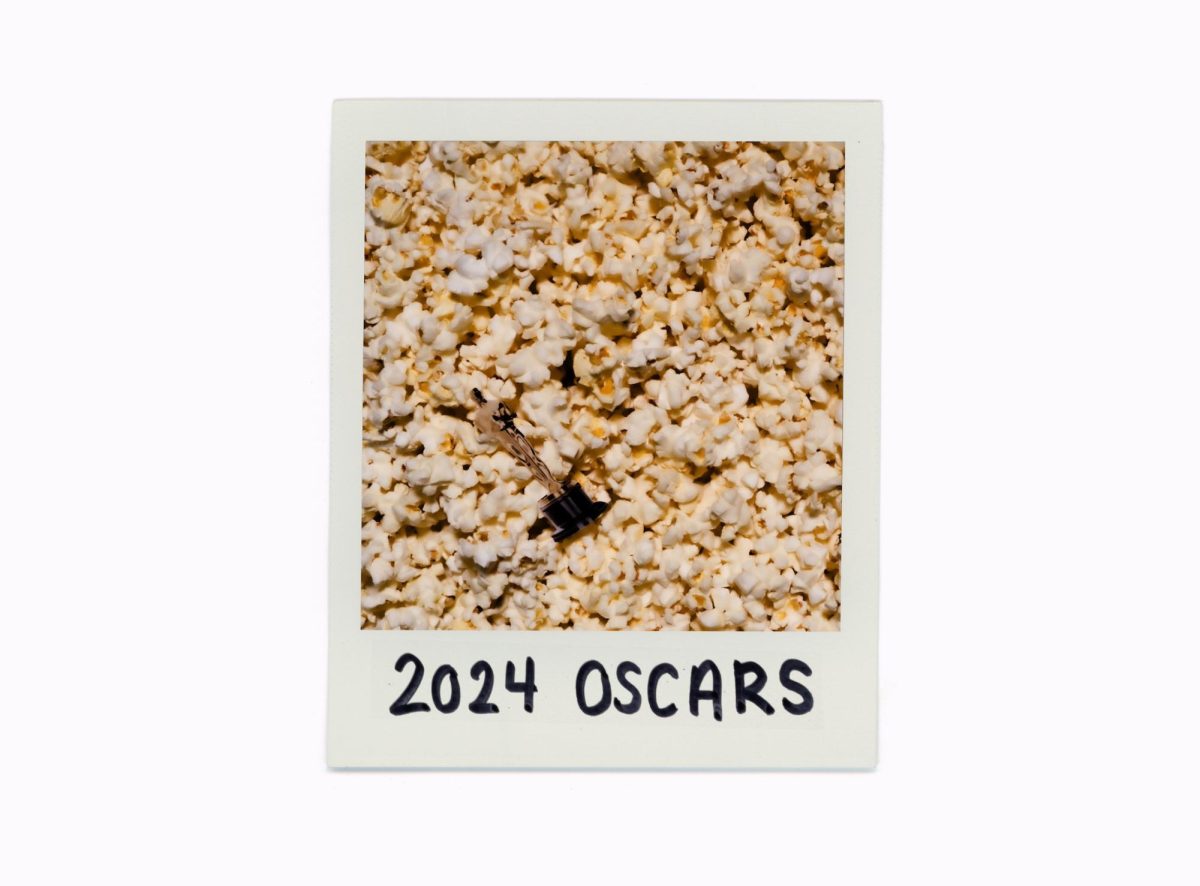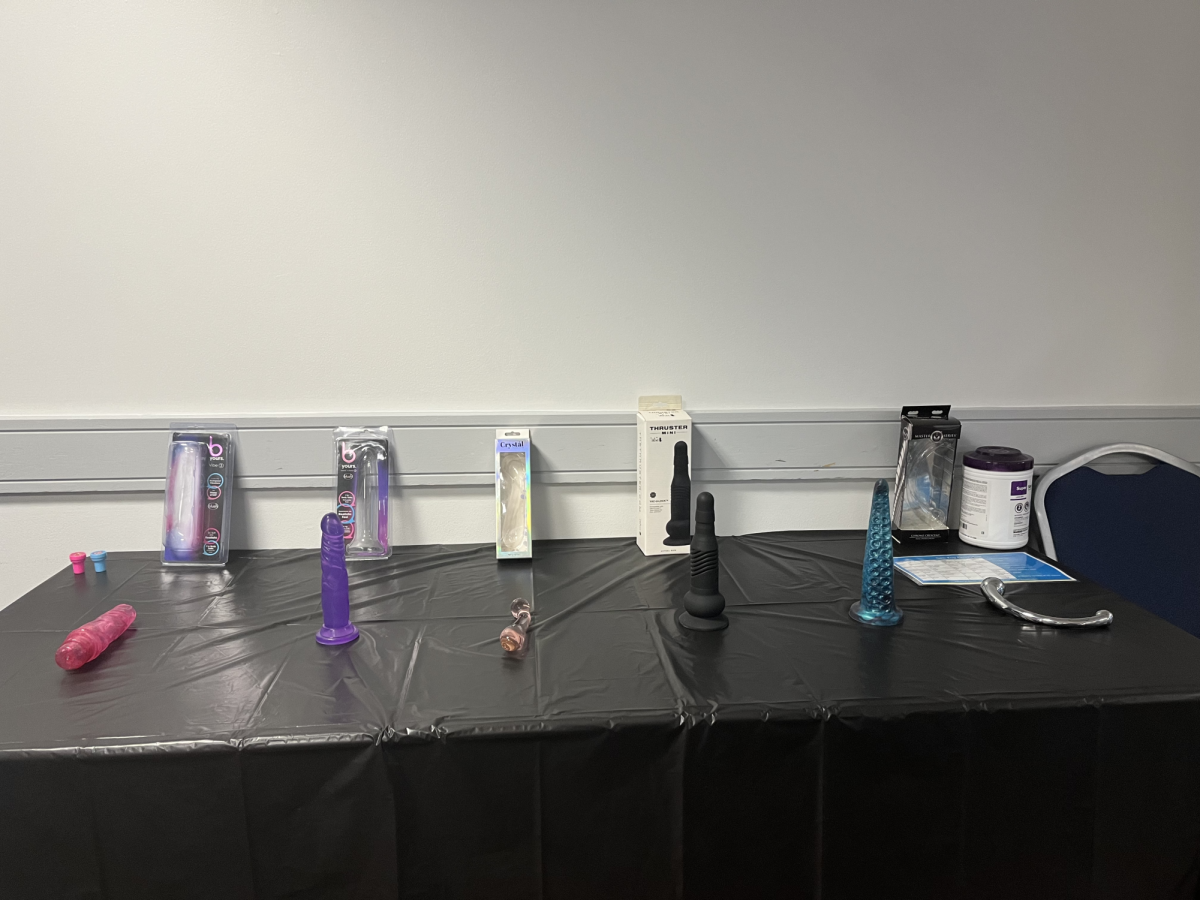As the 2024 Academy Awards approach, viewers wait in suspense to see which of the blockbuster or artsy films they’ve rallied behind will emerge victorious.
Though the numbers are sided with “Oppenheimer,” with a whopping 13 nominations, the artistry of “Killers of the Flower Moon” and the cult fanaticism surrounding “Barbie,” mean no person, or doll, should be ignored. Here are our predictions of which creatives will go out with a bang and the poor things who will walk away empty-handed.
Best Picture
Nick Perkins | Culture Editor
The Oscars are silly — they’re just an excuse for Hollywood’s best to hand out trophies to each other. The one real value the awards have is as a historical document: The easiest way for film buffs to find out what the best films of 70 years ago were is to look at what won Academy Awards that year.
That’s why “Oppenheimer” deserves Best Picture this year — an award it’s almost certain to receive, given how it has dominated precursor awards. The film is also a once-in-a-blue-moon cinematic event. When was the last time a three-plus hour historical biopic was one of the most-seen movies of the year? The blend of popularity and quality makes the film worth remembering generations from now, something the Oscars should cement by awarding it Best Picture.
Best Director
Zach Blackburn | Editor in Chief
Christopher Nolan will likely take home the Best Director statuette for the technical prowess he displayed in creating “Oppenheimer,” but the Oscar deserves to go elsewhere. Martin Scorsese, an American champion of cinema, directed one of the most heart-wrenching films in recent memory: “Killers of the Flower Moon.”
The three-and-a-half-hour epic is a devastating culmination of the many themes Scorsese explored during his iconic career: American greed, masculinity, guilt, redemption, authority and religion. But the introspective “Killers” is also an uncompromising, audacious reckoning with his work and its meaning — how could it be just to make entertainment of America’s brutal history? Scorsese doesn’t have the answers, but his attempt to find them confirms his status as a master of the craft.
Best Actor
Henry Huvos | Senior Staff Writer
The modern Hollywood blockbuster lives and dies on the back of the lighthearted, attractive lead who cracks jokes and saves the day. This makes it especially impressive that the defining cinematic image of 2023 is of Cillian Murphy’s haunting, dead-eyed expression at the end of “Oppenheimer” as he reconciles with his Promethean fate and the grim realities of nuclear proliferation.
Murphy bears the burden of an epic he’s rarely offscreen for, tasked with balancing turmoil and cowardice, appearing both outwardly sympathetic and callous yet vulnerable while repressing so many of the film’s events. Few actors could handle the weight of “Oppenheimer” on their shoulders, but Murphy, with whom Nolan wrote the film in mind, delivers. It should and likely will be his first-ever Academy Award.
Best Actress
Bridget Smith | Reporter
In a high school yearbook photo that recently went viral, actress Lily Gladstone poses with a classmate above the words “Most Likely to Win An Oscar.” The superlative predication is apt after Gladstone’s breakout role in Scorsese’s “Killers of the Flower Moon.” Gladstone’s nomination is also historic — she is the first Native American woman to be nominated for Best Actress and would be the first to take home the award.
Gladstone takes the audience captive in her stare and refuses to offer release throughout the three-hour runtime, moving with deliberate restraint from fondness to agonizing grief to unflinching resilience. She keeps the performance at an expertly steady pitch, escalating and releasing tension with a simple change in expression.
Best Supporting Actor
Jenna Baer | Contributing Culture Editor
Though this category’s title is best “supporting” actor, the frontrunner nominees are especially antagonistic this year. The likely winner is Robert Downey Jr., who snagged his honors at other award shows for his portrayal in “Oppenheimer” of Lewis Strauss, a champion of the devastating hydrogen bomb during the Cold War and a general thorn in Robert J. Oppenheimer’s career.
But, there was another unexpected supporting character turned villain who is equally deserving of acclaim: Ryan Gosling’s Ken. From singing ballads about being an overlooked love interest to believably portraying the emotional intelligence of a child through temper tantrums, Gosling dove into the absurd cellophane waters of Barbie World and held nothing back. Sadly, awards shows don’t grade people on Kenergy alone.
Best Supporting Actress
Brooke Shapiro | Reporter
With theaters overrun with moviegoers dressed in pink, there is no doubt “Barbie” was the movie of the summer, earning eight Oscar nominations. Despite snubs to some of the film’s central figures, America Ferrera scored a Best Supporting Actress nominee for her performance of perhaps the most relatable woman in the film. Burdened by the “impossible” task of modern feminine and maternal demands, Ferrera delivered an emotional performance familiar to any woman.
Ferrera’s impassioned two and a half-minute monologue on the impossibility of being a woman was among the most memorable of the film. The speech stuck with young girls as an introduction to feminism and older women as a heartbreaking reflection of their experiences. While Da’Vine Joy Randolph, who has taken home most of the Oscar’s precursor trophies, is all but certain to win the award for her touching performance in “The Holdovers,” Ferrera’s “Barbie” performance deserves a nod from the academy.
Best Original Screenplay
Caitlin Kitson | Senior Staff Writer
Director Alexander Payne’s “The Holdovers” confidently asserts itself in the coming-of-age genre through writer David Hemingson’s earnest screenplay. Set at a boarding school in 1970, “The Holdovers” chronicles the unlikely bond between a curmudgeon classics teacher (Paul Giamatti), the school’s recently bereaved head chef (Randolph) and a smart yet rebellious student (Dominic Sessa). The three central characters find common ground in their feelings of grief and loneliness amidst the suffocating atmosphere of the holiday season.
In this resonant story, Hemingson crafts grounded characters who connect through comical and tender moments that feel familiar to any audience member. Although French legal drama “Anatomy of a Fall” will likely take home the prize, “The Holdovers” makes its case for Best Original Screenplay through its compelling characters and balance of levity and drama.
Best Adapted Screenplay
Jackson Lanzer | Staff Writer
In a film packed with stunning imagery and a star-studded cast, Nolan’s “Oppenheimer” screenplay still shined through for its ability to weave together two plots — the Manhattan Project’s development of the Nuclear bomb and the security clearance hearings orchestrated to damage Oppenheimer’s reputation. Nolan grasped the audience’s attention throughout the film with constant tension, defying the supposed short attention spans of the TikTok era.
Film nerds, like yours truly, who get ahold of a physical copy of the screenplay will notice that a large portion of it is written in the first person. Unlike most scripts, which are told from the third person, much of the script is written from Oppenheimer’s point of view, eliciting a more engaging reading experience that feels almost like reading a novel at parts. This fusion of experimental screenwriting and masterfully melded plots makes Nolan’s “Oppenheimer” the deserving and likely winner of Best Adapted Screenplay.




